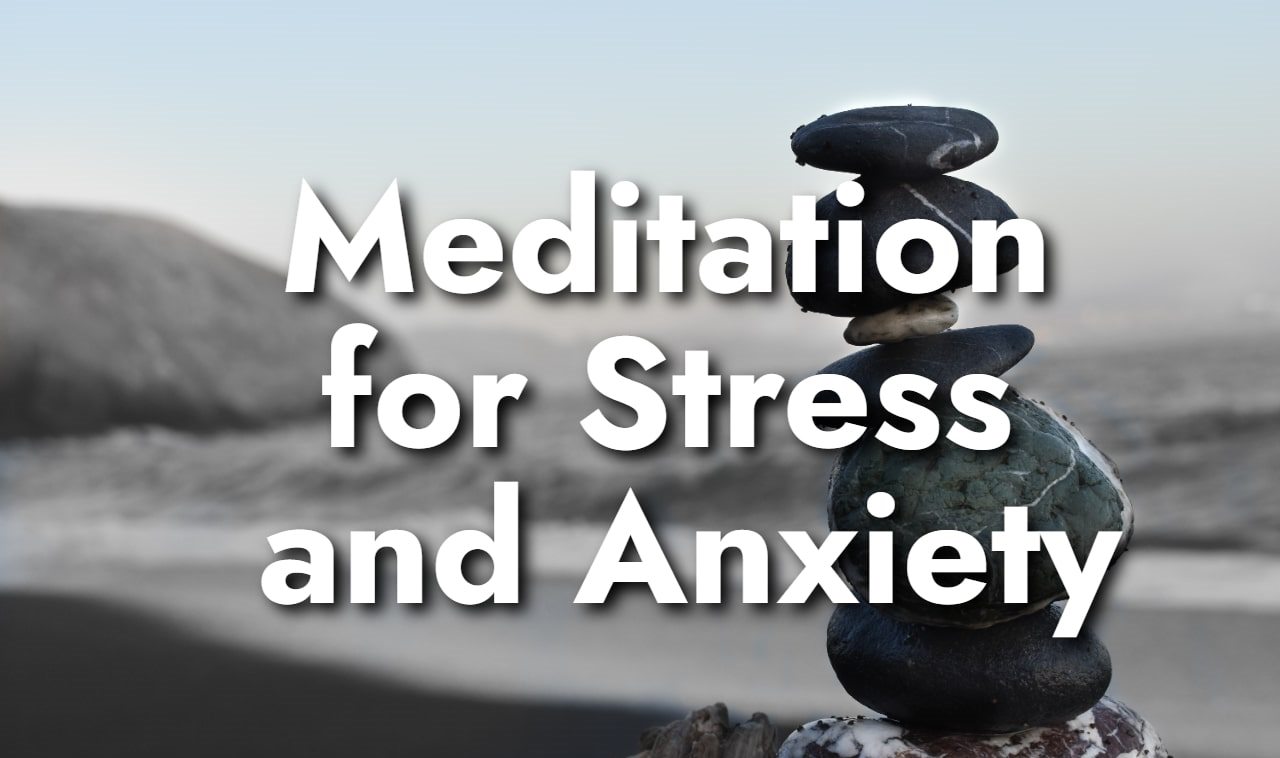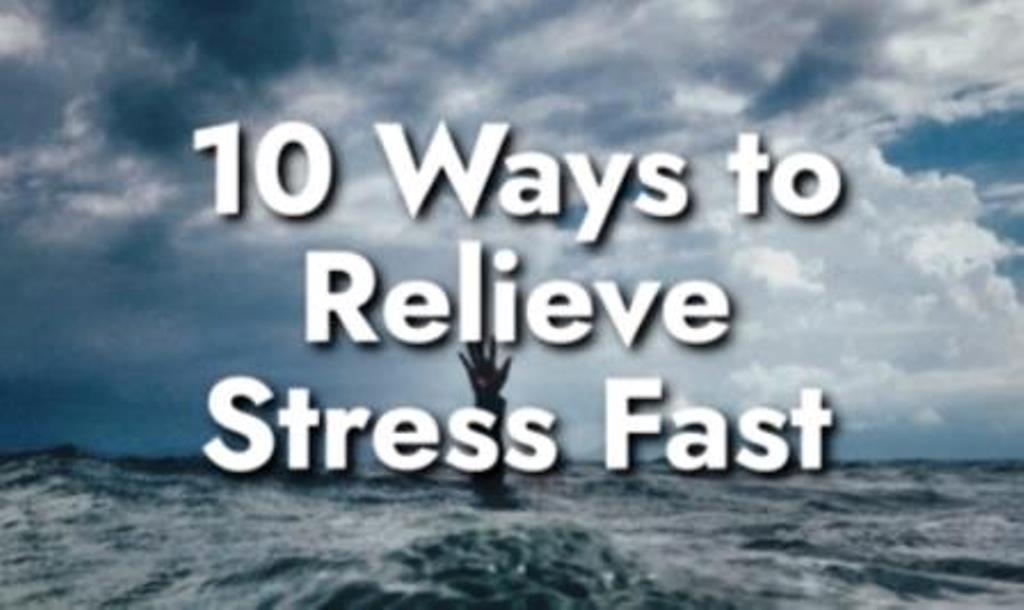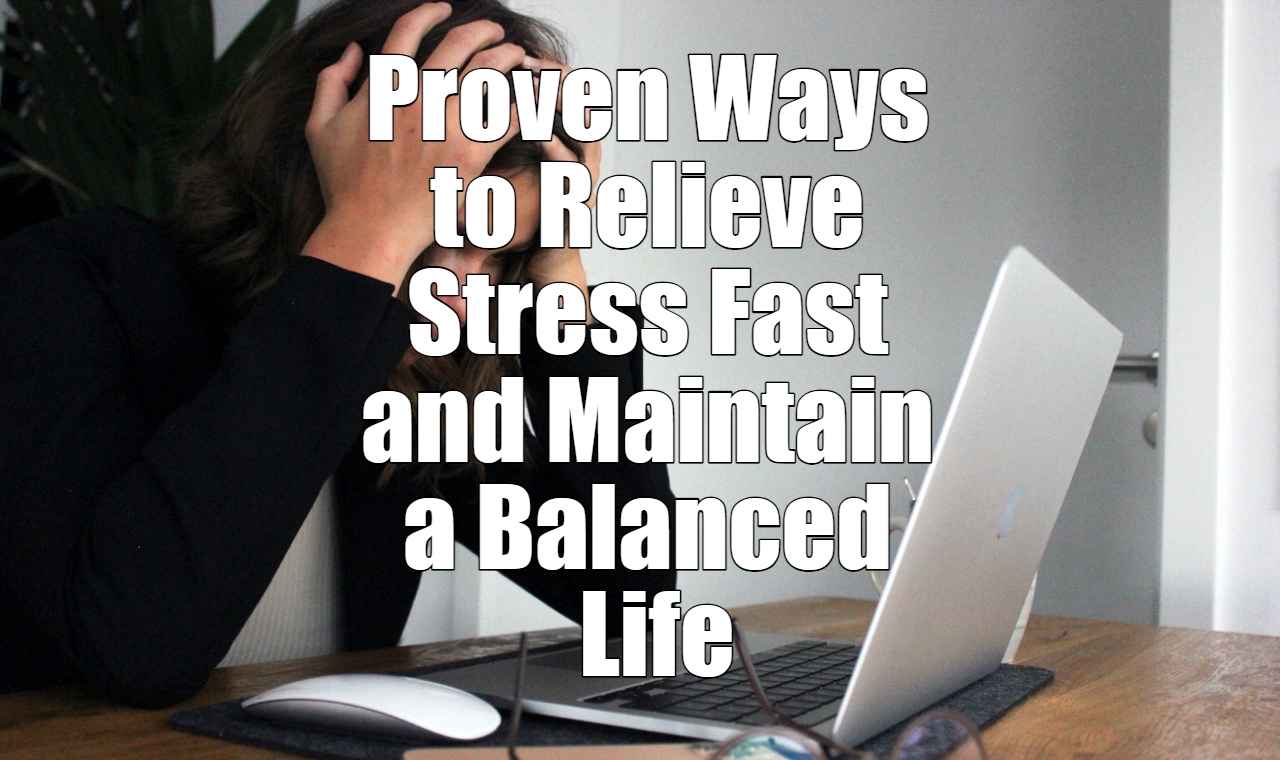In a world where stress and anxiety are common companions, carving out moments for meditation can be a soothing balm for anxious feelings. This practice is about more than just finding calm; it’s a strategic approach to managing the sources of stress that permeate our daily lives. With breath awareness at its core, meditation can guide us back to a state of balance and tranquility.
Whether you’re a seasoned practitioner or new to the scene, various meditation techniques can help mitigate the mental churn. By engaging in regular sessions, individuals can develop resilience against stress and anxiety, fostering a sense of mental well-being that resonates through all aspects of life.
Impact of Stress and Anxiety
Stress and anxiety, if left unchecked, can create a domino effect on our overall health. Anxious feelings can become a cyclical trap, where the body’s response to stress only heightens the anxiety. Through breath awareness, we can begin to understand and address the root sources of stress, setting the stage for a more peaceful mind and body.
How Chronic Stress Affects Our Health
The relentless grip of chronic stress can have far-reaching impacts on our health, but mindfulness and meditation offer a preventive shield. These practices serve to buffer the stress response and foster resilience, potentially mitigating the harmful effects that prolonged tension can bring to our well-being.
Fundamental Meditation Techniques for Anxiety Relief
Meditation is a powerful tool that can soothe anxiety and transform our relationship with anxiety. Through regular meditation, including mindfulness meditation, individuals can learn to release muscle tension and improve stress management. A consistent meditation practice is key to maintaining the gains achieved and deepening the beneficial effects over time.
Mindfulness Meditation
Research, including randomized clinical trials published in the Journal of Consulting and Clinical Psychology, has shown that mindfulness meditation can be effective in preventing relapse into depression. Moreover, mindfulness-based cognitive therapy for depression incorporates elements of mindfulness meditation with traditional cognitive behavior therapy, enhancing its effectiveness. Breathing exercises are often a fundamental component of this practice.
The Power of Deep Breathing Exercises
Deep breathing exercises are a cornerstone of meditation practices, facilitating a direct path to relaxation. With each inhale and exhale, these exercises help to calm the nervous system, providing immediate relief from the physical symptoms of stress and anxiety.
Progressive Muscle Relaxation (PMR)
The technique involves a two-step process: first tensing, then relaxing different muscle groups. This contrast in muscle relaxation can significantly reduce overall bodily tension and stress, making it an effective practice for those seeking a methodical approach to relaxation.
Step-by-Step Guide to PMR for Anxiety
Progressive Muscle Relaxation is a meditation practice designed to help individuals become more aware of their muscle tension and to learn how to release it. Meditation is a powerful tool to soothe anxiety and improve the relationship with anxiety. Regular meditation using PMR involves systematically tensing and relaxing different muscle groups, which can help alleviate both physical and mental tension.
Body Scan Meditation for Tension Release
Body scan meditation is a technique that promotes the release of tension by focusing on various parts of your body. As you take deep breaths, you become aware of any physical sensations that may be linked to stress. The process of observing and releasing these sensations can help alleviate tension, and vice versa, reducing the frequency of panic SOS episodes.
How to Perform a Body Scan Meditation
Anxiety-inducing thoughts can often manifest as tension in the body. Through body scan meditation, you can methodically focus on each part of your body, noting any discomfort or stress. This heightened awareness allows for a mindful release of tension, helping to calm both the mind and the body.
Cultivating Compassion Through Meditation
Compassion is a muscle that can be strengthened with practice, and meditation offers the perfect exercise. Through techniques such as Loving-Kindness Meditation, individuals can foster an attitude of kindness toward themselves and others, which is essential in preventing relapse into negative states like depression, as shown in randomized clinical trials and noted in the Journal of Consulting and Clinical Psychology.
Loving-Kindness Meditation (LKM)
Loving-Kindness Meditation is a practice that helps to cultivate feelings of compassion and love towards oneself and others. By sending well-wishes and positive intentions, individuals can enhance their emotional well-being and connect with a sense of universal love.
Advanced Meditation Practices for Profound Relaxation
For those seeking deeper levels of tranquility, advanced meditation practices can lead to profound relaxation. These techniques often require more discipline and practice but can offer significant rewards in terms of inner peace and mental clarity.
Mantra Meditation to Focus the Mind
Mantra meditation helps to focus the mind and fend off distracting thoughts. By silently repeating a calming phrase or sound, practitioners can enter a relaxed state, distancing themselves from the chaos of everyday thoughts and finding a deeper sense of focus and peace.
Guided Imagery Meditation
Guided Imagery Meditation offers a mental escape to serene landscapes or calming scenarios. With the guidance of a narrator or script, individuals can visualize a journey that promotes relaxation, reduces stress, and enhances emotional well-being.
Music Meditation for Emotional Balance
Music meditation can harmonize the mind, soothing negative emotions and promoting tranquility. By carefully selecting calming tunes, individuals may find their heart rate slowing, signaling a reduction in stress levels. This auditory approach to meditation helps create an emotionally balanced state, ideal for those seeking refuge from the chaos of daily life.
Introducing Meditation into Your Daily Routine
Integrating meditation into daily life can be transformative, offering a wellspring of peace amidst the bustle. Starting or ending the day with a meditation session can create a grounding effect, helping to navigate life’s challenges with a steadier hand and clearer mind.
How to Create a Meditation Space at Home
Designing a meditation space at home invites a serene atmosphere for practice. Choose a quiet corner, add comfortable cushions, and perhaps an inspiring item or two. This sanctuary should evoke feelings of anxiety dissipating, as you tune into the sensations in your body and the peace of the present moment.
Integrating Meditation into Your Morning Ritual
Beginning the day with mindfulness and meditation can set a positive tone, offering clarity and calmness. A morning ritual might include a few minutes of seated meditation, fostering a mindful approach to the unfolding day.
Meditation Breaks at Work for Stress Management
Taking meditation breaks at work can be a powerful tool for stress management. Even a brief session can refresh the mind, bolster resilience, and enhance focus, contributing to overall well-being and productivity.
Overcoming Common Meditation Challenges
Embarking on a meditation journey is not without its hurdles. Common challenges include finding time, maintaining focus, and dealing with distractions. However, with persistence and patience, these obstacles can be navigated successfully.
Handling Intrusive Thoughts During Meditation

Intrusive thoughts can be a common interference during meditation. Acknowledging their presence without judgment and gently guiding focus back to the breath or chosen object of meditation can help in maintaining a peaceful practice.
Building Consistency in Your Meditation Practice
Consistency in meditation practice is key to reaping its full benefits. Establishing a routine, perhaps by meditating at the same time each day, can help in forming a habit that sticks.
Meditation Techniques for Specific Anxiety-Related Issues
Mindfulness and meditation offer valuable techniques for addressing various anxiety-related issues, providing tools to manage symptoms and improve quality of life.
Meditation to Alleviate Social Anxiety
Meditation practice, particularly when consistent, is a powerful tool for mitigating social anxiety. Through regular meditation, one can cultivate a sense of inner peace, enhancing confidence and ease in social situations.
Meditation Strategies for Panic Attack Relief
For those who experience panic attacks, meditation can foster nonjudgmental awareness and become a vital part of the daily routine. This practice may help mitigate the intensity and frequency of panic attacks, offering a sense of control and calm.
Mindfulness-Based Cognitive Therapy (MBCT)
MBCT combines cognitive therapy with guided meditations, aiming to break the cycle of recurring depression and anxiety by fostering awareness and acceptance of present moment experiences.
Breathing Techniques Tailored for Stress Reduction
Breathing techniques are central to meditation practices, particularly for managing anxiety and panic. They are especially beneficial for those with anxiety disorders, helping to induce relaxation and a sense of control.
The 4-7-8 Breathing Method
The 4-7-8 breathing method is a simple yet effective technique to calm the nervous system. By inhaling for 4 seconds, holding the breath for 7, and exhaling for 8, this practice can promote relaxation and stress relief.
Box Breathing for Instant Stress Relief
Box breathing is a powerful tool for managing stress, involving inhaling, holding, exhaling, and pausing for equal counts. This technique can quickly restore a sense of calm and balance during stressful situations.
Frequently Asked Questions on Meditation Practices
Can I Cure My Anxiety with Meditation?
Meditation practice is a powerful tool for coping with feelings of anxiousness, but it’s not a standalone cure. Regular meditation can alleviate symptoms of generalized anxiety disorder and reduce physical manifestations like tightness in the chest. It allows individuals to observe their thoughts without judgment, which can lessen anxiety’s impact over time. However, it is most effective when combined with other treatments recommended by healthcare professionals.
How Long Should I Meditate to Reduce Stress?
There’s no one-size-fits-all answer, but starting with short sessions and gradually increasing the duration can be beneficial. Even a few minutes of meditation daily can help reduce stress levels. The key is consistency; making meditation a regular part of your routine is more important than the length of each session. Over time, as you become more comfortable with the practice, you may find longer sessions more beneficial.
Is There a Right Way to Meditate in Bed for Anxiety?
Definitely! Meditating in bed can be a soothing experience. Imagine walking down the aisle towards a peaceful slumber. Start by finding a comfortable position, focus on your breath, and gently guide your attention back when it wanders. There’s no wrong way to meditate in bed, as long as it helps you relax and eases your anxiety.
Enhancing Your Meditation Experience with Technology
Technology can play an instrumental role in deepening and enriching your meditation practice. It offers new avenues to explore meditative states and can enhance the overall experience, making it more accessible and engaging for practitioners of all levels.
Apps and Online Resources for Guided Meditation
With a plethora of apps and online resources available, finding meditations for anxiety tailored to your needs is easier than ever. These tools can guide you through meditation sessions, providing support for both beginners and advanced meditators. They offer a variety of meditative practices that can be used to specifically target the effects of stress, greatly benefiting your mental health.
Utilizing Wearables to Monitor Meditation Efficacy
Wearables are revolutionizing the way we track our meditation efficacy. These devices measure physiological changes during meditation, such as heart rate and breathing patterns, providing valuable feedback on how the practice is impacting our bodies and helping us fine-tune our approach for maximum benefit.
The Journey from Stress to Serenity: Testimonials
Hearing others share their transformative experiences with meditation can be inspiring. Testimonials often highlight personal journeys from overwhelming stress to a place of serenity and calm, illustrating the profound impact that a committed meditation practice can have on an individual’s life.
Continuing Your Meditation Journey
Embarking on a meditation journey is a continuous process of learning and growth. As you delve deeper into the practice, you’ll discover an ever-expanding horizon of techniques and insights that can further enhance your experience.
Workshops and Retreats for Deeper Learning
Workshops and retreats offer immersive experiences for deeper learning. These gatherings provide an opportunity to practice meditation in a supportive environment, learn from experienced instructors, and connect with a community of like-minded individuals all committed to their meditation journeys.
Books and Podcasts for Expanding Your Meditation Knowledge
Books and podcasts can be invaluable resources for expanding your meditation knowledge. They offer diverse perspectives and insights into the practice, helping you to deepen your understanding and discover new techniques to incorporate into your own practice.
Navigating Life’s Challenges with a Mindful Approach
Life is full of challenges, and adopting a mindful approach can provide the tools needed to navigate them with grace and resilience. Mindfulness offers a way to engage with our experiences directly, without the overlay of judgment or reactivity, allowing us to face difficulties with clarity and compassion.
Applying Mindfulness to Difficult Emotions
Applying mindfulness to difficult emotions involves observing these feelings with acceptance and without trying to change them. This practice can lead to greater emotional regulation and an understanding that emotions are transient, which can diminish their intensity and impact.
Mindfulness for Suicide Prevention: Personal Insights

Mindfulness can play a significant role in suicide prevention. Personal insights gained through mindfulness practice can offer a new perspective on life’s challenges, fostering a sense of hope and the realization that there are always alternatives to ending one’s life.
Conclusion: Embracing Meditation for Life-Long Resilience and Peace
Embracing meditation is a commitment to lifelong resilience and peace. It’s a journey that nurtures self-care and has a ripple effect, enhancing personal well-being and contributing to the well-being of our communities. Through regular practice, the benefits of meditation can permeate all aspects of life.
The Ongoing Commitment to Mindfulness and Self-Care
Maintaining mental well-being through mindfulness requires a steadfast dedication to self-care. By routinely engaging in meditation, individuals can better manage their thoughts and emotions, fostering a growing body of resilience against stress. This commitment is bolstered by findings from randomized controlled trials, which demonstrate the efficacy of mindfulness practices in enhancing emotional regulation and mental health. Therefore, the journey towards tranquility is an ongoing process of nurturing the mind and body with attentive self-compassion.
The Ripple Effect of Meditation on Personal and Community Well-Being
The practice of meditation extends its benefits beyond personal health, influencing the well-being of entire communities. As individuals attain a state of relaxation through techniques that relax the body and lower heart rate and oxygen consumption, they often experience a reduction in negative emotions. This shift in mindset, guided by mindful awareness, can be contagious, spreading calm and compassion to others. Pioneers in the field, like Jeff Warren, along with programs like MBSR and MBCT, have illuminated how a single person’s inner peace can resonate outward, promoting a harmonious and healthy society.

























